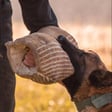
Dr. Beam - Trauma/Burn/Critical Care Surgeon
Dr. Beam had dreams of a career in music. Fast forward a "few years" and he is now a Trauma surgeon. Life is funny how we make plans and then we look back wondering how we got where we are. In this interview we discuss the long and tough journey to becoming a Trauma surgeon and all that comes along with this challenging, and rewarding career. We talk about how to prevent burnout, the importance of keeping your arrogance at bay, we discuss pay and education, as well as how satisfying it can be to see a patient make it. Dr. Beam is a great example of a steady and methodical approach under pressure. If a career as an emergency surgeon sounds interesting to you, this is one episode you will want to listen too. Thanks. Dr. beam!
If you liked this episode and would like to support the show, you can do so HERE. Thanks!



















